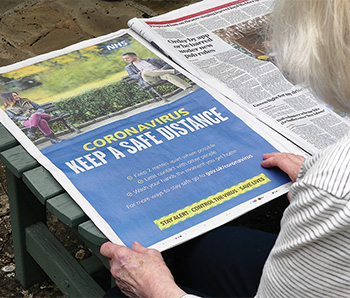HALF a million disabled, older people and those from BAME communities across Merseyside and Cheshire are missing out on information that could make a vital difference to their lives.
While more services continue to go online, one in five of the population who are not connected are more likely to suffer poorer health outcomes and will continue to miss out on wide-ranging social and work opportunities, says a new study.
Research by Liverpool City Region shows 20% (300,000) of residents lack basic digital skills to go online due to age, poor long-term health and/or disability, unemployment, and education.
Another 200,000 people in Cheshire are also digitally excluded.
The LCR report says: “The Covid-19 pandemic has exacerbated the marginalisation of those without either the basic skills and/or financial or practical means to access digital connectivity and public, financial, health, and retail services, accessing culture and entertainment, socialising and, perhaps most devastatingly, learning.
“This is even more so in places such as the Liverpool City Region with relatively prevalent and high levels of deprivation. Essentially, those already at a disadvantage are most likely to be missing out further thus widening the social inequality gap.”

At the same time, the internet is increasingly needed to access public authorities or services, many of which are now “digital by default”, the study adds.
“For many, this is convenient. However, for others it presents a significant challenge and makes already difficult circumstances yet more trying.
“One clear example is claiming Universal Credit or completing a ”jobsearch journal” without the internet access that many take for granted, further exacerbated by the closure of libraries during the Covid pandemic,” adds the report.
According to Lloyds Bank Consumer Digital Index 2020, age remains the most significant indicator whether an individual is online with 77% of over-70s being considered to have very low digital engagement and only 7% likely to have the capability to shop and manage their money online.
The LCR report warns: “ONS data over the last decade demonstrates that the share of non-users aged over-65 is rising. Although each successive generation may be more digitally engaged than the last, health and cognitive decline may lead to declining digital engagement, while technological advances may render people’s previous skills obsolete.
“Across all age groups, disabled adults make up a large proportion of adult internet non-users. In 2017, 56% of adult internet non-users were disabled, much more than two and a half times the 22% proportion of disabled adults in the UK population as a whole. A similar pattern of non-use is also seen amongst people who are economically inactive, including those on long-term sick leave.”
IN A separate study in June that focused on Liverpool’s mass Covid-19 testing pilot, Dr Mark Green at the University of Liverpool, said: “We found strong digital inequalities in testing patterns, with areas less confident in using the internet also having lower uptake.”
People living in the most deprived areas of the city and from black, Asian, and other non-white ethnic groups and areas classified with high digital exclusion were among those who did not take up the offer to be tested.
ALMOST HALF (43%) OF LIVERPOOL’S POPULATION ARE EITHER OVER 65 OR DISABLED
Liverpool City Region’s Spatial Development Strategy Evidence Base report reveals:
- Liverpool City Region has high levels of health deprivation and disability.
- 47% of neighbourhoods are in the top 10% most deprived in the country.
- 20% – 300,000 – of the population are aged 65 or above, higher than the figure of 18.4% for England.
- Almost 230,000 people aged 16-64 have a long-term disability that limits their lives or ability to work (23.6% of the total 16-64 population – higher than the national average).
- Over two-thirds of adults are overweight or obese – higher than the national average.
- The prevalence of severe mental health disorders is higher than nationally.
THE NHS say these sections of the population are more likely to be digitally excluded than others:
- Older people.
- People with disabilities.
- Those in lower income groups
- People without a job.
- Those in social housing.
- People with fewer qualifications, those excluded, and early school leavers.
- Those living in rural areas.
- Homeless people.
- People whose first language is not England


